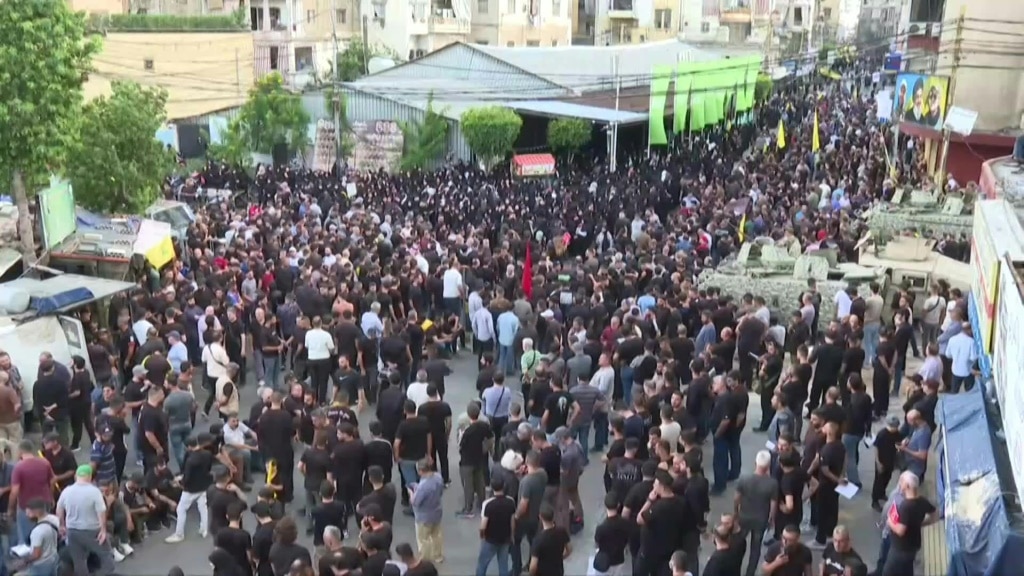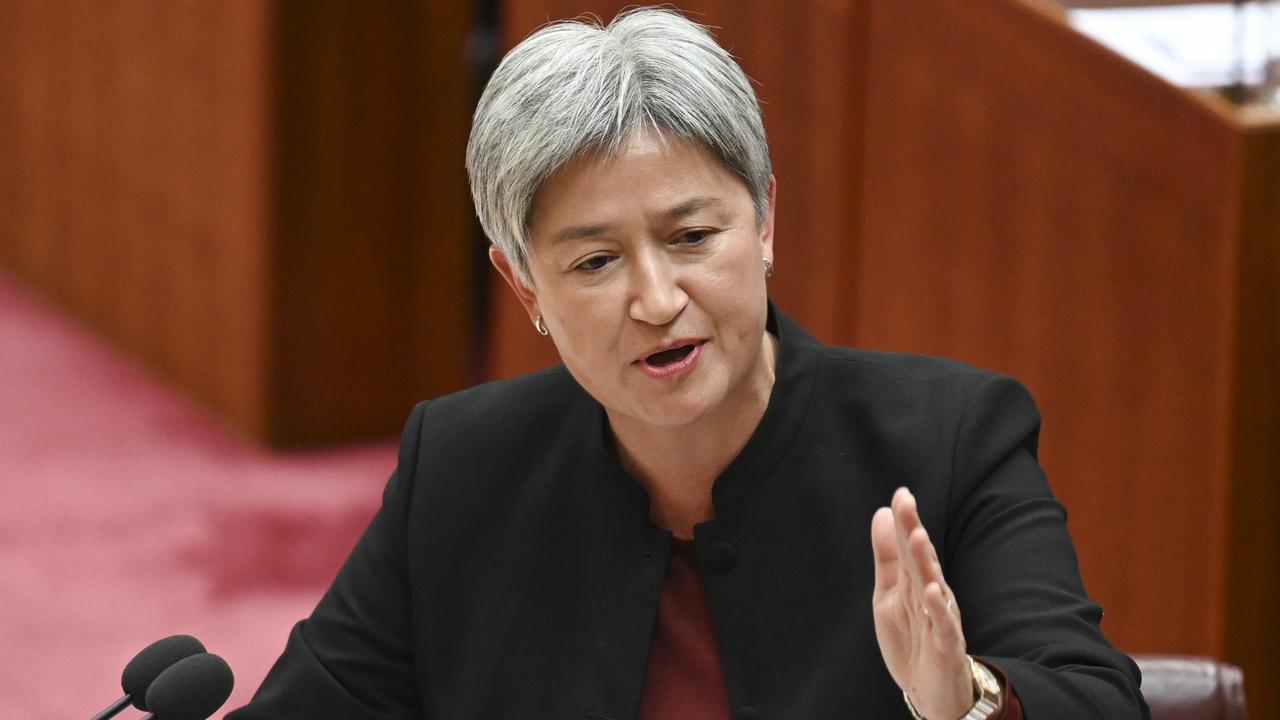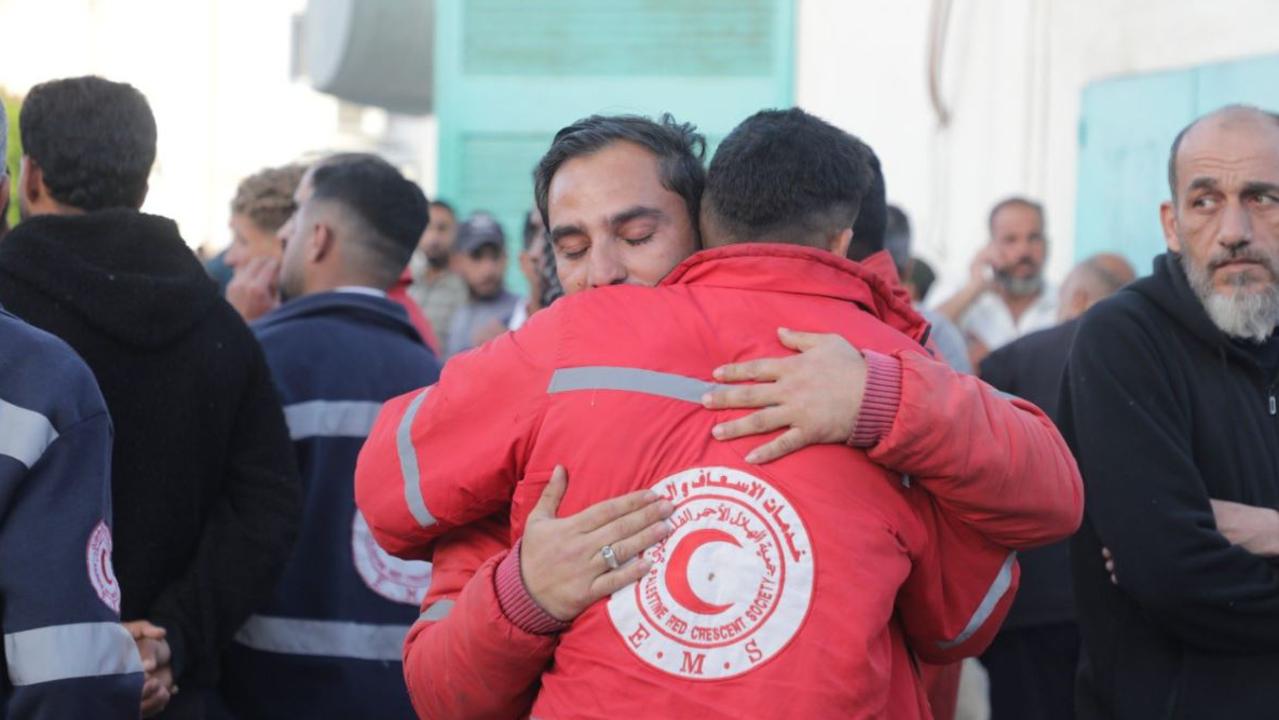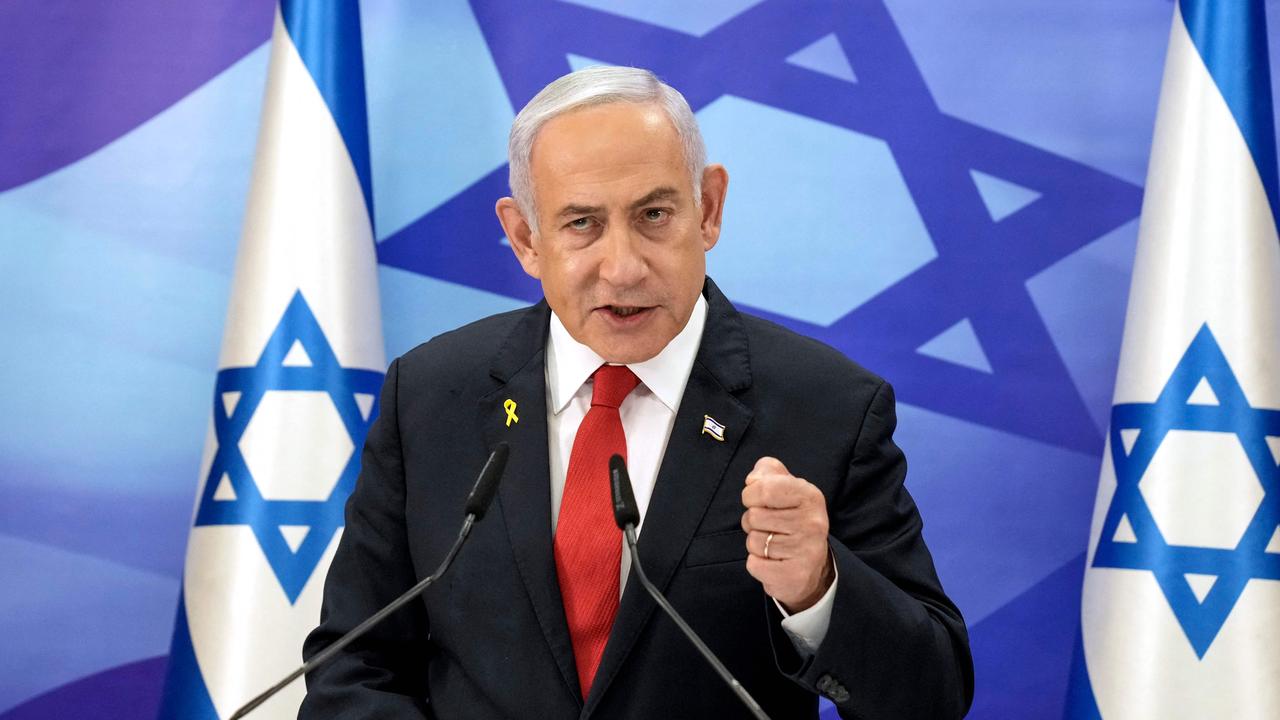Israel bombs Beirut day after ‘war declaration’
At least 14 people have died after a missile hit a busy suburb of Beirut just a day after the head of Hezbollah said Israel had crossed “all red lines”.
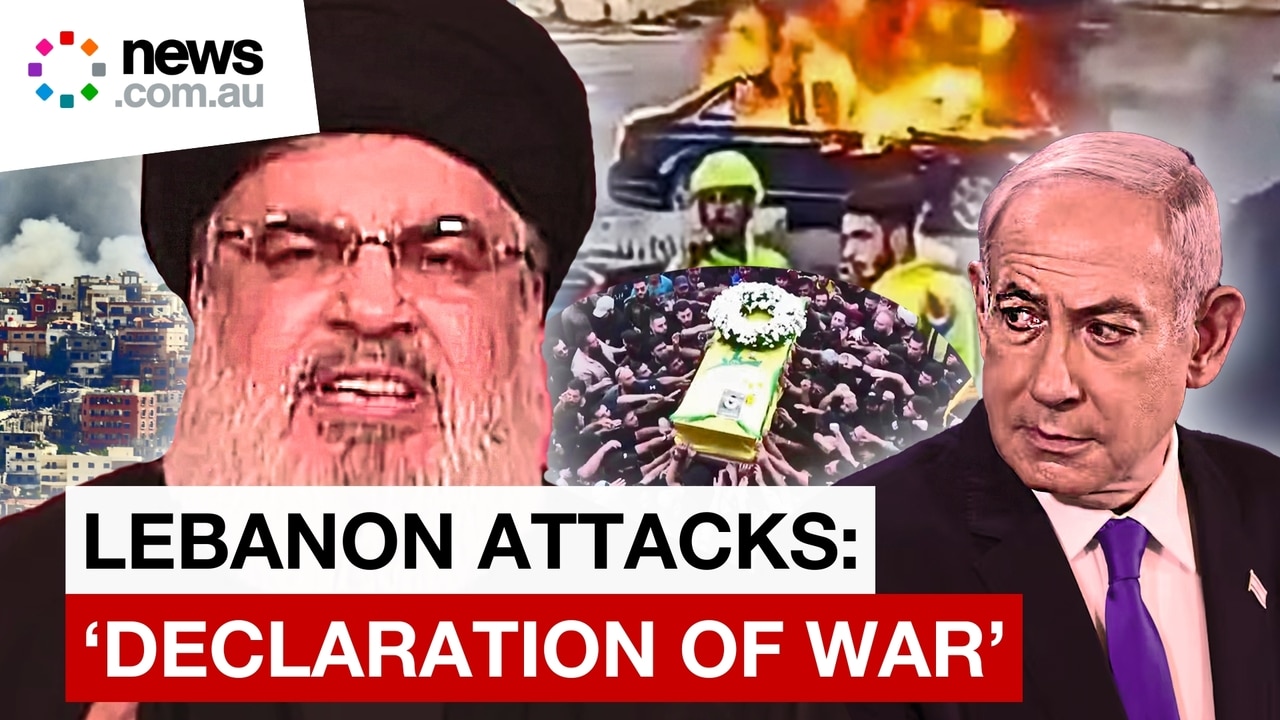
Israel has carried out a deadly air strike on Beirut which it claims has taken out as many as 10 Hezbollah commanders who were planning to attack and occupy northern parts of Israel.
There are reports the strike hit a residential building meaning civilian casualties are a possibility.
It’s feared the attack could be the opening salvo in a war between Israel and Hezbollah which might include a full ground invasion of northern Lebanon.
That could be a “doomsday scenario,” a Lebanese politician has said.
Hezbollah has in turn fired around 140 rockets into northern Israel.
At around 4pm on Friday (11pm AEST), local time, the Israeli Defence Force (IDF) confirmed a “targeted air strike” on Lebanon’s capital city.
Images show major damage in the busy and densely populated suburb of Dahieh, a stronghold of the militant group Hezbollah in Beirut’s south.
At least 14 people died and 66 were injured, the Lebanese health ministry said. But that figure could rise.
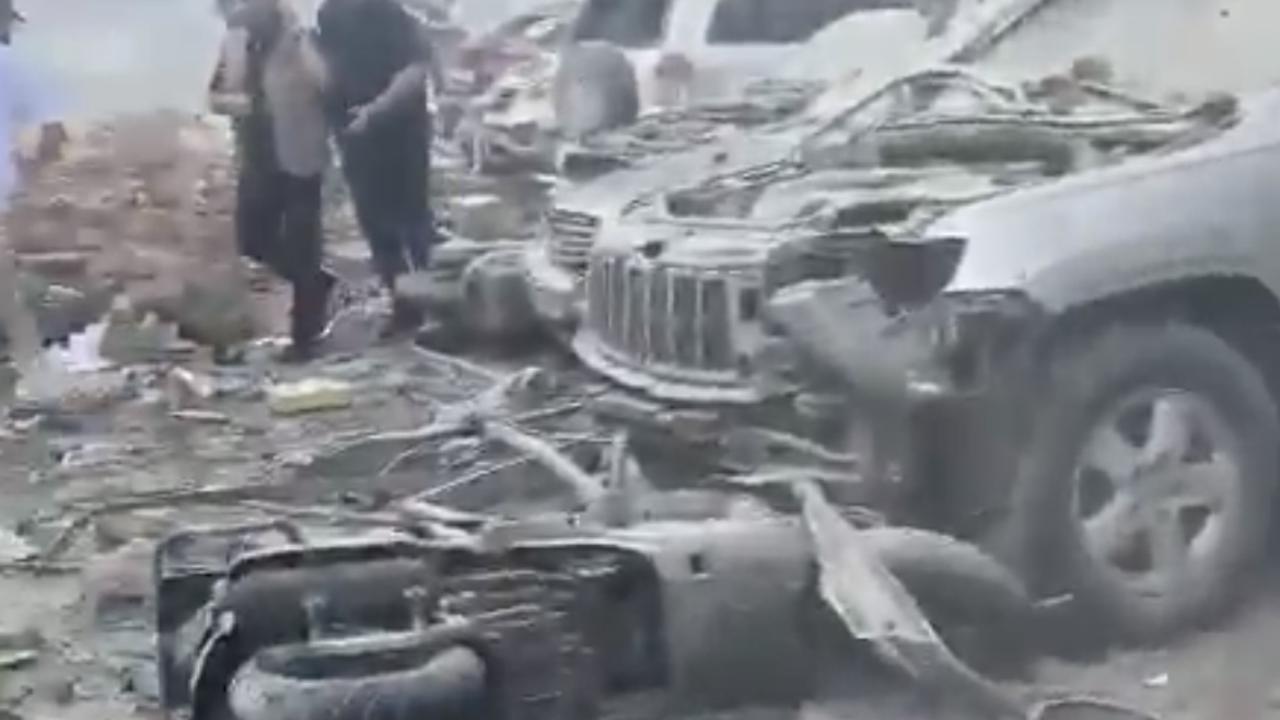
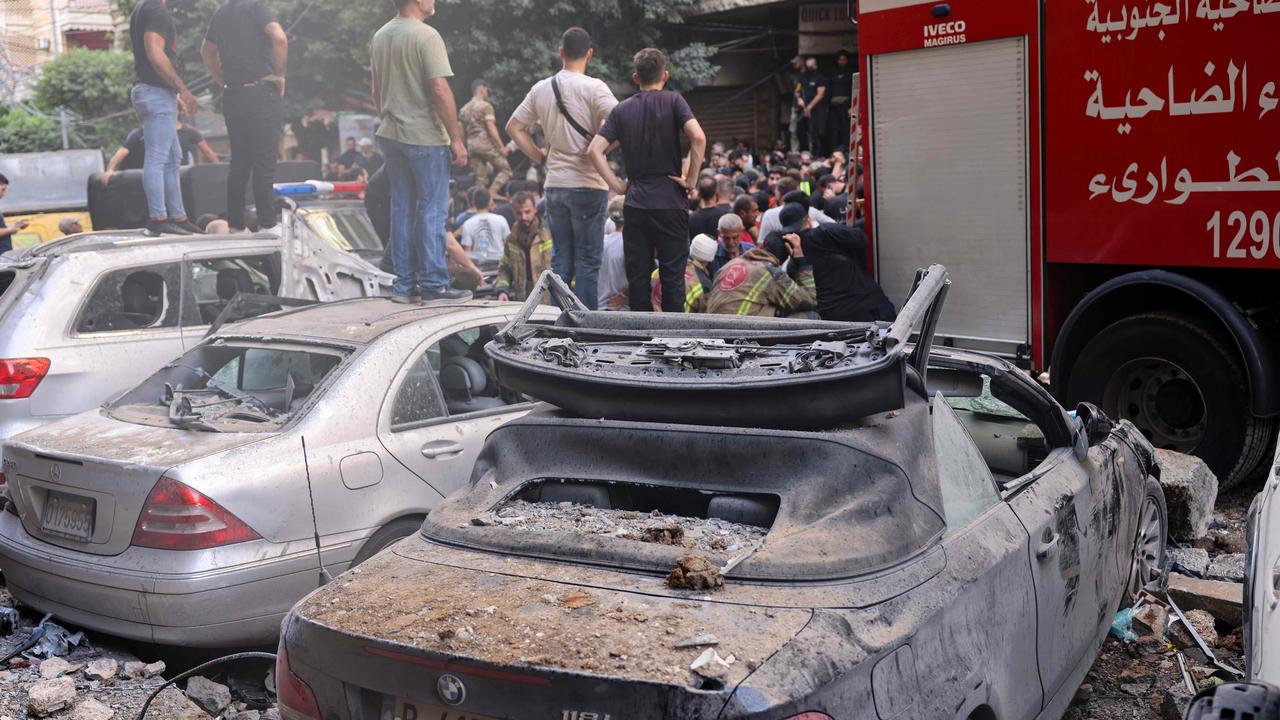
Israel claims killed Hezbollah leader was planning attack
IDF sources told newspaperThe Times of Israelthat the target was Ibrahim Aqil, who sits on the Jihad Council, Hezbollah’s top military body and was the leader of its elite Radwan Force. He is thought to have died along with several other Hezbollah officials.
In a statement the IDF said: “Aqil and the commanders who were eliminated were among the architects of the ‘plan for the occupation of the Galilee,’ in which Hezbollah planned to raid Israeli territory, occupy the communities of the Galilee, murder and kill innocents, similar to what the Hamas terror organisation carried out in the murderous massacre on October 7”.
IDF spokesman Daniel Hagari added: “They gathered underground, under a residential building, in the heart of the Dahieh, while using civilians as a human shield”.
But despite the devastation, Mr Hagair said Israel’s aim was not war.
“We are not aiming for a broad escalation in the region. We are operating in line with the defined objectives and will continue to do so”.
Israeli Benjamin Netanyahu said after the air strike “Our goals are clear, and our actions speak for themselves”.
But Israeli opposition leader Yair Lapid has laid into the PM on Twitter/X.
”Netanyahu, what are the goals? It’s already been eleven months of lawlessness in the south and the north. And the most important goal of all — bringing home the 101 hostages. What about that?”
It is the third air strike on Beirut this year. All have targeted Hezbollah leaders.
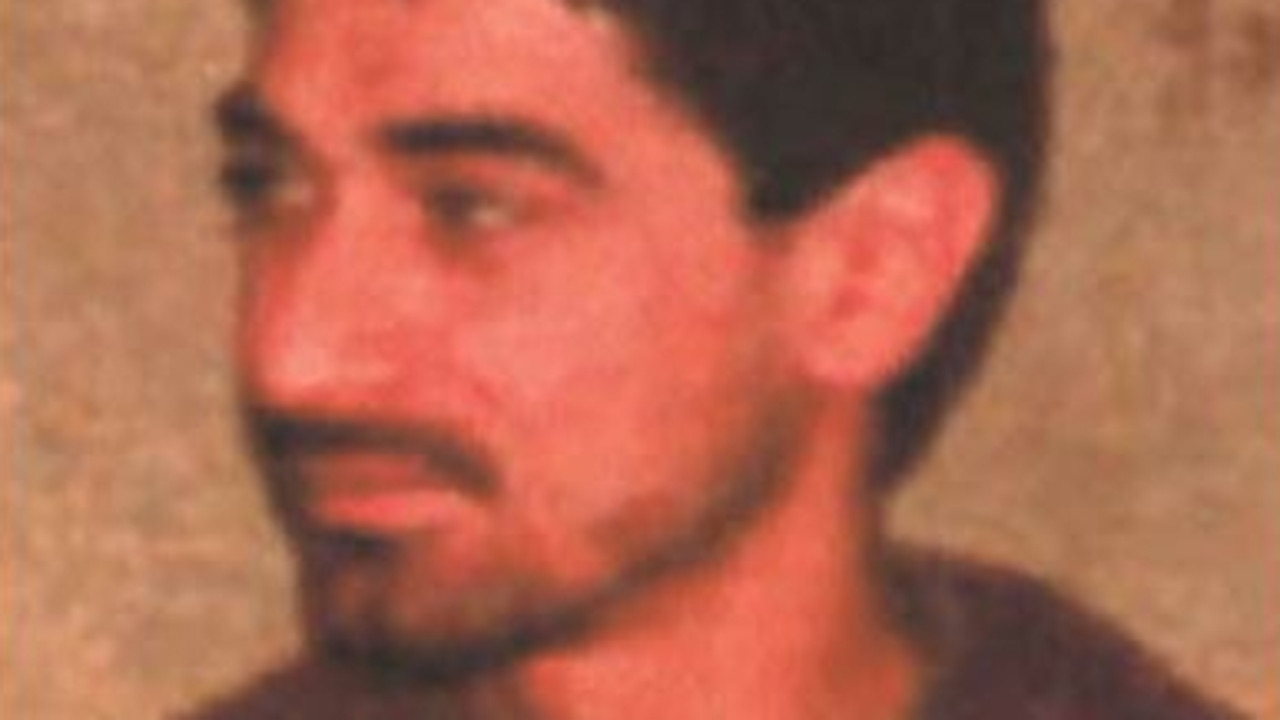
‘Doomsday scenario’
Throughout Friday, including after the Beirut attack, Hezbollah also fired rockets into northern Israel.
Israel confirmed that its much vaunted missile defence system had not been able to shoot them all down.
While central areas of Israel, including the cities of Tel Aviv and Haifa, were not targeted, the Hezbollah rockets were sent further into northern Israel than usual. They were targeted beyond an evacuation zone on the border where most of the militant groups projectiles have landed.
Hezbollah, backed by Iran, is based in Lebanon but many Lebanese people do not support the militant group.
Lebanon’s ambassador to the UK Rami Mortada told UK newspaper The Times that an Israeli invasion would be a “doomsday scenario”.
“We are facing all the risks of an all-out regional conflict and that’s what we have been tirelessly trying to avoid.”
Iran’s foreign ministry said it was a “brutal and vicious air strike of the Zionist regime on Beirut,” and a “gross violation of international law”.
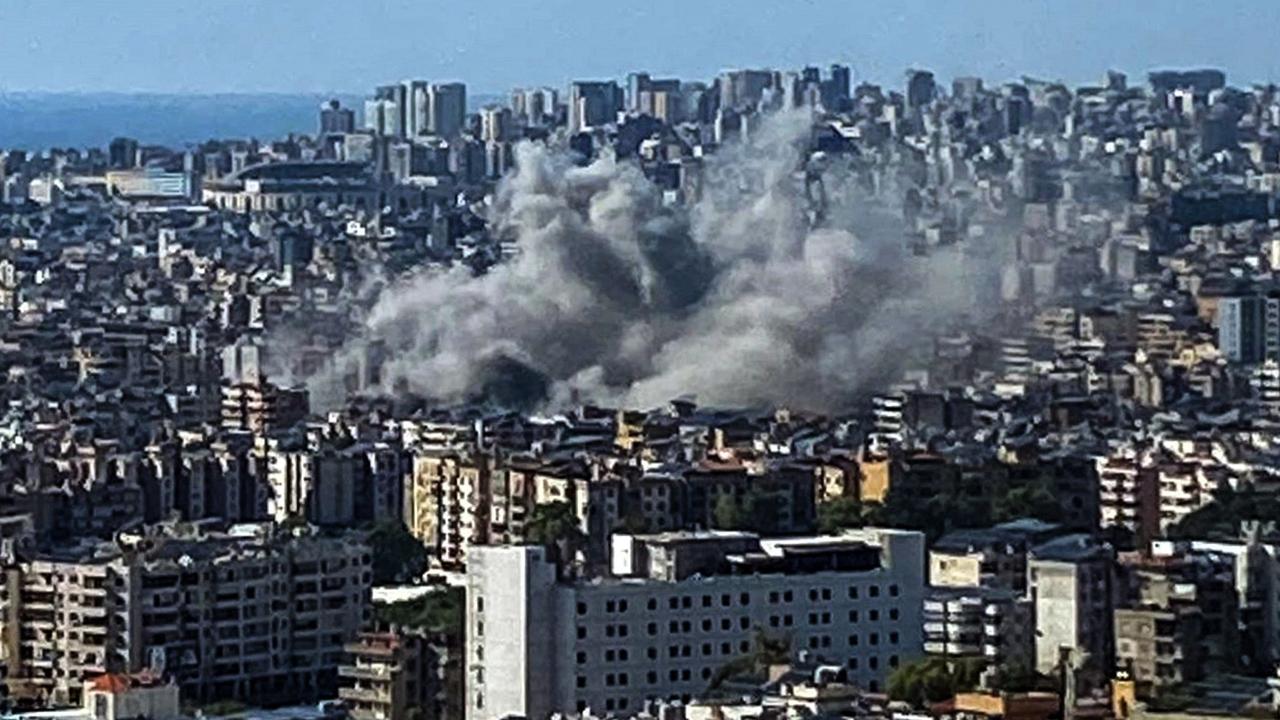
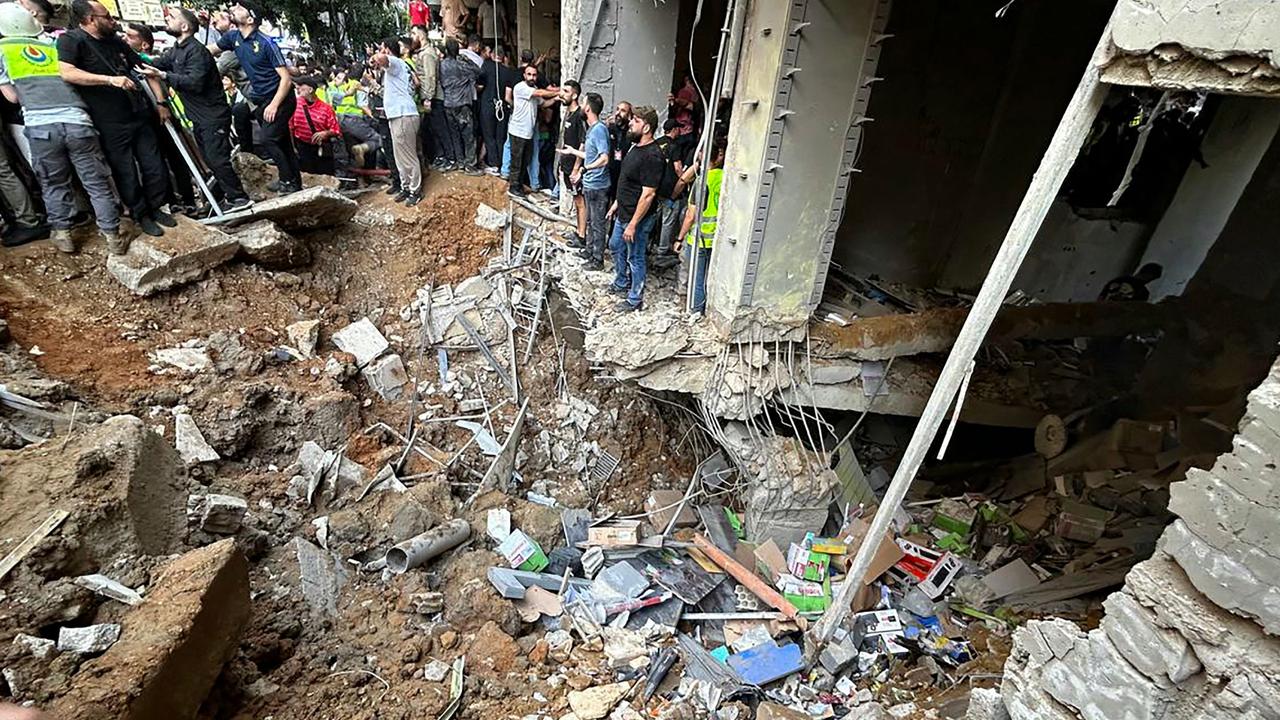
Israel, still fighting in Gaza, would be stretched to open a second front in Lebanon. Teh US and other eastern nations have also been pleading with it not too.
But Prime Minister Benjamin Netanyahu, whose government is propped up by right wing nationalists eager for a fight against Hezbollah, has said its aim is to allow 60,000 residents of northern Israel to return to their homes.
The only way to do that, it has benne said, is to push Hezbollah further away from the Israeli border.
However, this risks a potentially painful conflict due to Hezbollah’s weaponry which is more sophisticated than that of Hamas’ in Gaza and could reach into more populated areas of Israel if the country’s missile shield are overwhelmed.
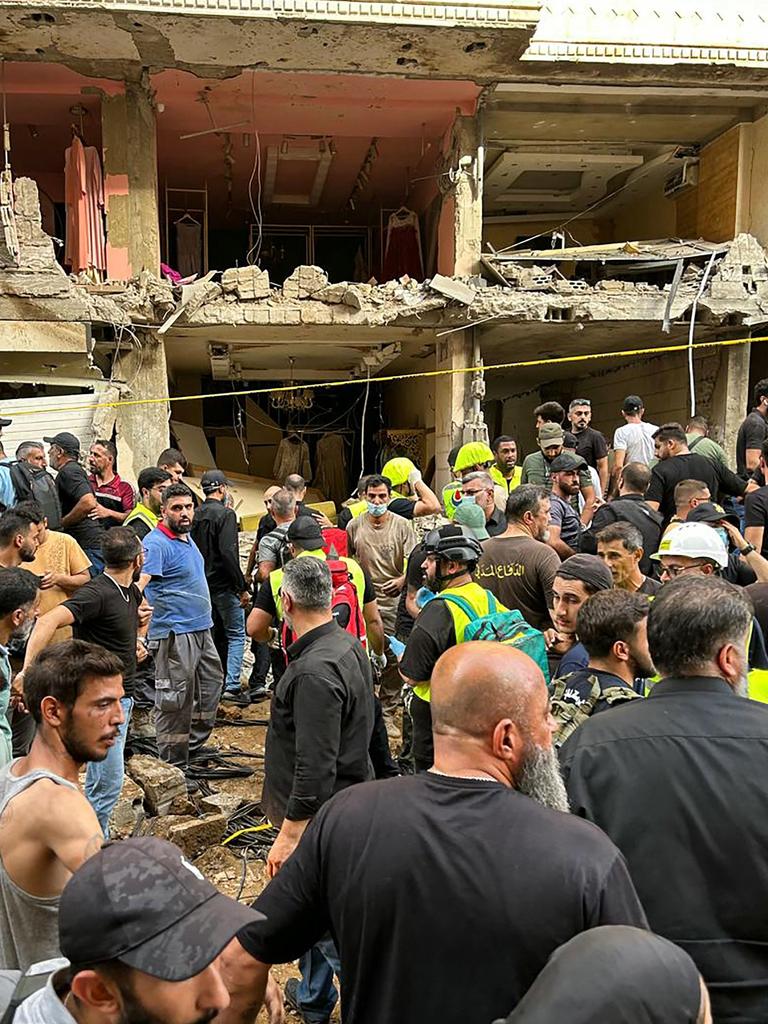
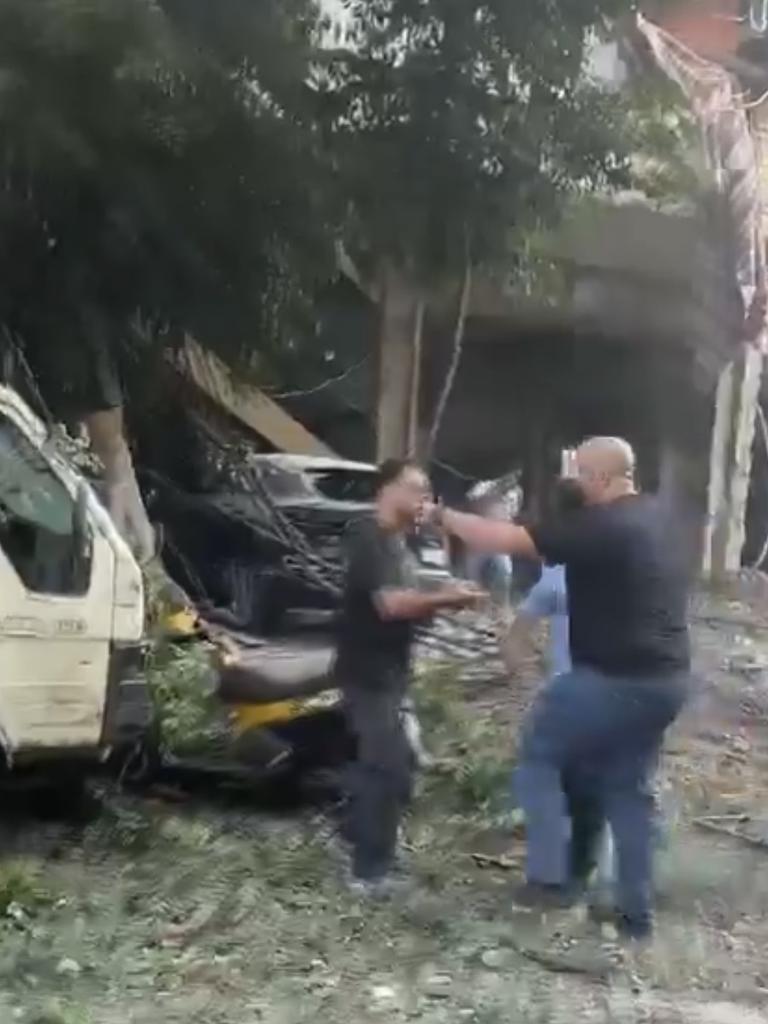
More Coverage
The Beirut attack comes days after 37 people were killed following consecutive attacks that saw pagers and walkie talkies explode, which Israeli was thought to be behind.
On Thursday, Hezbollah leader Hassan Nasrallah said the attacks, which also injure thousands, were a “declaration of war” by Israel which as crossed “all red lines”.
“Reckoning will come,” he added, suggesting retaliation.



